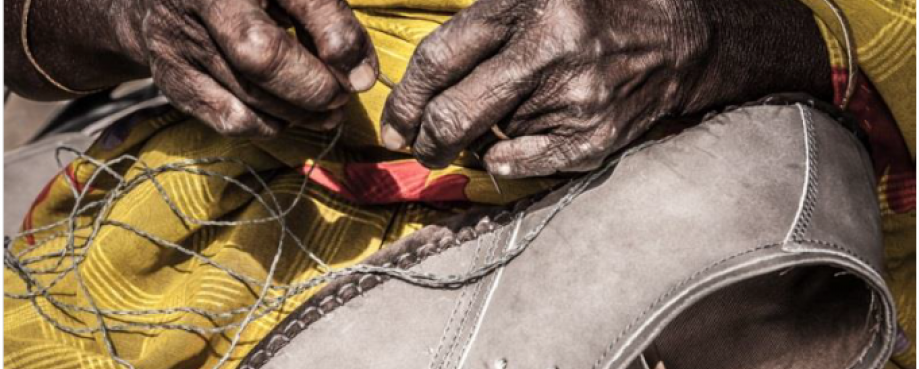
Tamil Nadu is making a name for itself. It seems to produce everything, from cars to electronics, and is a major source of textiles and garments for ETI member companies. It also styles itself as the leather hub of India, making leather footwear for many top fashion and footwear brands, ETI members and non-members alike.
Homeworkers Worldwide and its local partners have just published the first everdue diligence study of the Tamil Nadu leather footwear manufacturing sector, interviewing key local stakeholders to get a realistic picture of what’s happening on the ground.
Funded by ETI, Due diligence in Tamil Nadu leather footwear manufacture will support you to identify issues in their Tamil Nadu supply chains. It cites a number of issues that are not being picked up in company audits, including:
The inability of workers to exercise their rights to join trade unions
Low rates of pay, closer to the urban poverty line (for a family of four) than to a Living Wage
Widespread irregular employment. Workers employed on a daily or piece rate basis were denied holiday, maternity and other paid leave, and social protections through national insurance contributions
Gender and caste discrimination within factories, which often goes unrecognised
Particularly poor conditions for homeworkers, the lowest paid workers in the supply chain. Homeworkers face irregular employment in informal subcontract chains, out of sight of auditors, and their presence is often not disclosed to brands.
The good news is that these issues are now out in the open. You can use this report in your own due diligence, or maybe in discussions with your suppliers. Or you can share it with your auditors or local teams, so that they know what to look out for.
Homeworkers Worldwide can also help you address issues around homeworking in India, Pakistan and Nepal through the new Hidden Homeworkers project, co-funded by the European Community, working in partnership with Traidcraft Exchange and HomeNet South Asia, and their member organisations in the three countries. To find out more, please contact lucy@homeworkersww.org.uk
